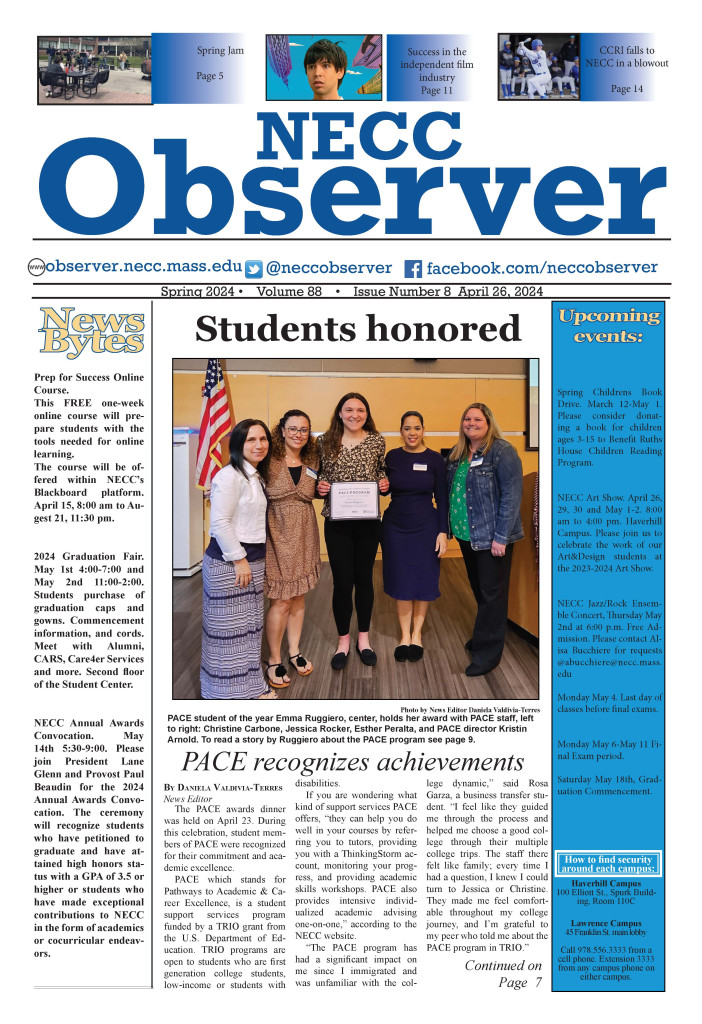Many in the surrounding communities were affected, students say
“We were a bit lucky,” says Alexis Fishbone, the Director of Financial Aid at Northern Essex Community College (N.E.C.C.) , regarding the recent federal government shutdown. According to Fishbone, N.E.C.C. suffered no financial damage as a result of the now-over 35-day shutdown that began last December. The shutdown began because U.S. President Donald Trump refused to sign any congressional funding bill that did not include money for his proposed southern border barrier. The shutdown did not spare all members of the Northern Essex community. According to recent research, many in the community suffered financially (and may still continue to suffer) due to the shutdown.
The luck of the college and its students was still fantastic news to Fishbone, however, as, according to her, all students receiving financial aid received all the money there were supposed to, and federal subsidies from the U.S. Department of Education were unaffected by the shutdown.
“No student was adversely impacted in terms of receiving their funds,” said Fishbone. And even though the Internal Revenue Service (the I.R.S.), the government agency that is an essential part of distributing financial aid, was closed, “(the college) notified all of the students who applied for aid for the spring semester of all the alternative documentation that they could submit to the office so that we could … get them awarded,” said Fishbone.
But while N.E.C.C. experienced only minor difficulties as a result of the shutdown, the same cannot be said for the rest of the surrounding community. About 22% of the 91 respondents of a random selection-based poll conducted from February 4 to February 5 at N.E.C.C.’s Haverhill campus said that someone they knew was negatively affected by the shutdown. Other parts of the community felt a similar effect.
Sierra Gitlin, a Newburyport political activist and former N.E.C.C. student, has provided an account of how the shutdown impacted Newburyport. According to Gitlin, Newburyport is widely recognized as the birthplace of the U.S. Coast Guard and is home to one of the Coast Guard’s major stations. Gitlin said, “They (the Coast Guard) were not getting paid, and … a lot of local businesses were offering them discounted or free meals, services, and access, and I think that was really great. A few local organizations were taking up collections, collecting gift cards for supermarkets, and Target, and Walmart, places like that, so that people could make sure they had their essentials.”
Gitlin also added that she was proud of the community for the help it offered, but also sad at how charity work had to be taken up to pay a branch of the military charged with keeping the country safe, a responsibility she stated was “a huge deal.”
The shutdown ended on January 25, according to The New York Times’s reporting, after President Trump signed a bill to reopen the federal government until February 15: the deadline by which a bipartisan funding resolution from Congress must be signed into law by Trump or, if Trump were to veto such a bill, passed by a supermajority in both chambers of Congress post-veto. If one of these scenarios does not happen by the 15th the government will shut down again, potentially plunging hundreds of thousands into even more turmoil.
But such a reality is considered unlikely by both Fishbone and Gitlin. Both expressed faith that a compromise would be reached by federal legislators by February 15, and that there would not be another shutdown.
And if another shutdown were to occur, Fishbone has a message of assurance for all members of the Northern Essex community: “Should a student feel the need to come to us because of their situation and because of the shutdown, they should feel comfortable enough … We’re here to truly support all of the students, whether there’s a shutdown or no shutdown.”

